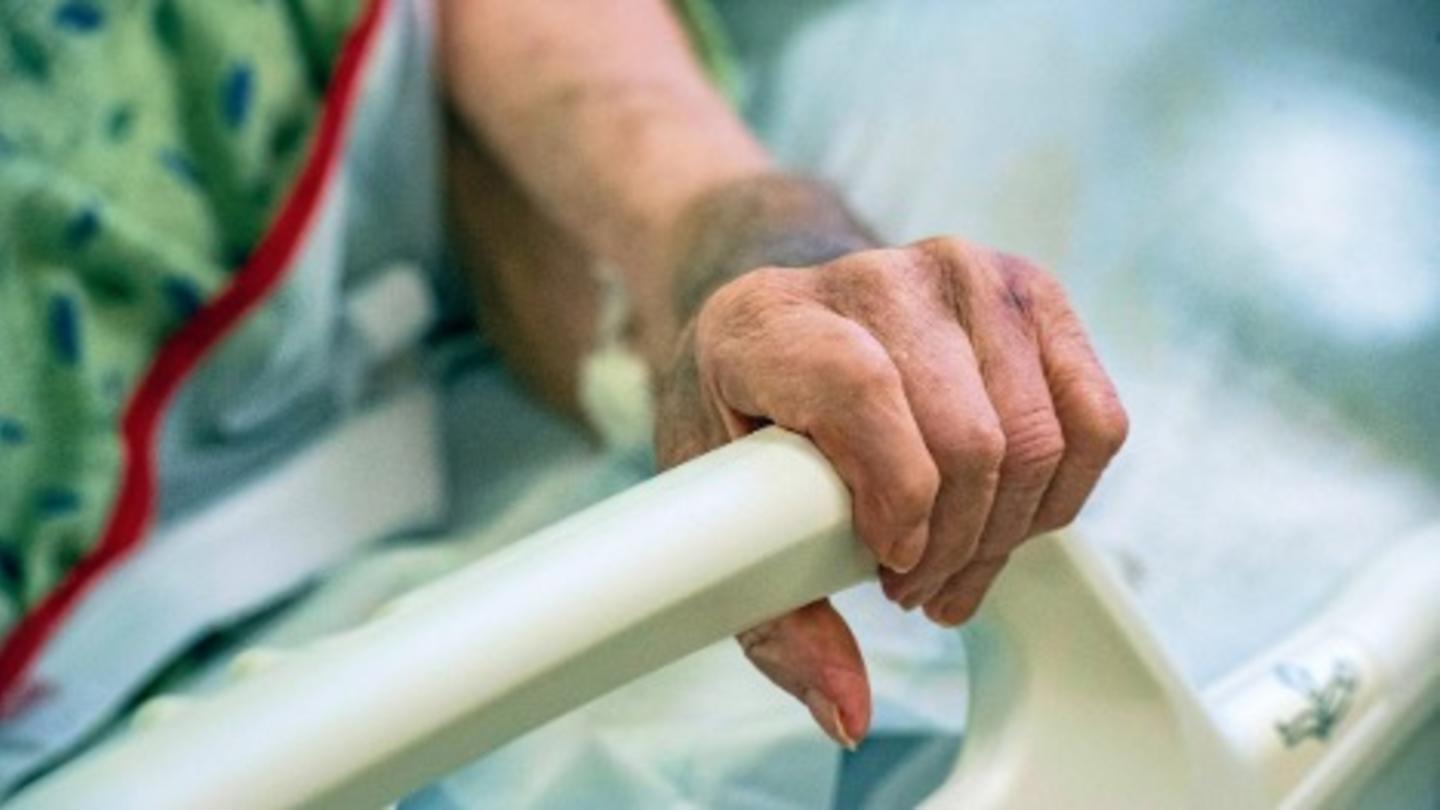The first thing Army veteran Jessica Villarreal learned when she left active duty after tours in Iraq and Afghanistan was not to go to the United States Department of Veterans Affairs for health care.
When seeking treatment, her fellow vets advised her, “Don’t go here,” she said. “So I went to a sister organization of the VA to get the help I needed.”
At the time, Villarreal was going through a struggle that many veterans experience when transitioning out of the military.
“What I’ve seen is a common theme,” she said. “The transition out of active duty to civilian life is very difficult, especially when you do not have a support system in place. You have to find somebody to help you navigate the system.”
Villarreal considers herself “blessed” to have had a community of fellow veterans to help her learn the nuances of the often overly complicated and bureaucratic VA health care sytem. But those who aren’t so fortunate are left alone to find treatment in an environment ill-equipped to support them.
In June, the VA MISSION Act, a law that promised expanded health care options for vets, marked its fifth year. The MISSION Act was intended to expand community care, urgent care, and telehealth for our nation’s heroes. However, its execution by the current VA secretary has been “a colossal failure,” said John Byrnes, strategic director for Concerned Veterans for America.
“Everybody thought it was a good bill in terms of getting what we wanted, which was the ‘community care access standard’ requirement,” Byrnes said.
In theory, it was good, but a combination of bureaucratic resistance and fumbled implementation by the current government administration made it ineffective.
Veterans are still struggling to access quality, timely health care, with many self-funding private options instead. Of the 18 million veterans currently in the United States, more than 9 million are enrolled in the VA health care system — a system that has a history of inappropriately prescribing medications for PTSD and other mental health conditions and where the nearest available provider could be 100 miles away. This doesn’t just harm veterans. It perpetuates a standard of communities across the country failing to help each other heal and thrive to their full potential.
“I didn’t feel welcome,” Villarreal said. “I felt very, very uncomfortable. It can feel like that for a lot of veterans. If you don’t have a support system, you don’t know where to go. You don’t know what to do.”
The question we’re left with is: Where do we go from here? And how can we better uplift not just our veterans, but all of our communities?
For those returning from war, more than basic care is needed
Part of the reason the VA’s lackluster performance is so damaging is that veterans often grapple with unique difficulties from their experience.
“When you’re in active duty, you don’t have time to process any kind of traumatic experience that you might have,” said Villarreal. “When you slow down, the emptiness comes in. … the silence comes in, and the issues begin to surface.”
When she returned to civilian life, Villarreal needed treatment for these mental health concerns, as well as for asthma induced by chemical exposure in the field. Also on her list were brain cysts, migraines, and physical therapy — just to start.
Her options were far from ideal. The nearest VA hospital she was eligible for was three hours from her home. The outpatient clinics in her vicinity weren’t equipped for many services and had limited availability. The clinic nearest her had a one-star rating and no women’s health care.
Villarreal realized just how critical her situation was when she learned about the cysts on her brain. She wasn’t told that these required regular monitoring and MRIs every six months. Her VA providers also didn’t alert her that her condition was urgent — despite her complaints of hearing loss and severe migraines.
“They failed me there,” she said. “It would have been resolved so quickly if I could have gone out to the community to get an MRI, but I had to drive 240 miles to the VA facility where they offered MRIs.”
Sign up for the Stand Together newsletter and get stories, ideas, and advice from changemakers to help you tackle America’s biggest problems.
When Villarreal’s mental and physical health struggles grew so bad that she began having suicidal ideations, she didn’t know where to turn. She didn’t feel comfortable going to a VA health care provider, but she also didn’t have private insurance.
“I was desperate,” she said.
Instead of using VA-provided health care, she was forced to pay out of pocket for mental health services for an entire year before becoming eligible for private insurance. Today, she marvels that her private insurance gives her access to the accountability, flexibility, and attention the MISSION Act should have provided.
“I can call my private primary care doctor today and say, ‘Hey, I need to see you,’ and I get there in 30 minutes,” she said. “It’s way easier for me to use private insurance than it was when I only had access to VA health care. I don’t have to fight for anything that I need.”
Villarreal is fortunate to have access to private insurance. For many other veterans, the VA system is their only option. Without access to quality, timely care, many are left to struggle and suffer through debilitating mental and physical injuries. When they don’t receive the care they need, they can’t pursue the life they want for themselves. That means entire communities are deprived of their potential — and we all suffer.
A reason for hope and healing
Despite the glaring problems with the VA health care system, Villarreal and Byrnes believe change is possible and imminent. For all of its faults, the MISSION Act did include the essential tenets needed to ensure comprehensive care for veterans — it was simply implemented poorly. It would likely involve a yearslong bureaucratic struggle to revamp the MISSION Act; instead, veterans and their communities are looking to other avenues for the advocacy they need and deserve.
Concerned Veterans for America is pushing for many improvements to health care for veterans, including more transparency and education around community care options, allowing veterans to choose between a provider they select or one from the VA system, codified standards, and more flexible benefits.
“The best medical needs of the patient must be determined by the patient and their doctor, not by some bureaucracy a thousand miles away,” Byrnes said. “We’re trying to get all of those access standards enshrined into law.”
In particular, CVA advocates for the Veterans’ Health Care Freedom Act, which would mandate full choice for veterans’ health care. After it was introduced in the House of Representatives a year ago, the act was referred to the Veterans’ Affairs panel’s health subcommittee, where it awaits passage.
If the act is approved, it would immediately affect a sizable section of American society: The result could be a life-changing shift for veterans and their families, empowering them with autonomy over their own health care decisions — and, by extension, the trajectory of their lives post-deployment.
The result could be a life-changing shift for veterans and their families, empowering them with autonomy over their own health care decisions — and, by extension, the trajectory of their lives post-deployment.
“Our goal in VA legislation reform is to empower veterans to be in charge of their own health care,” Byrnes said. He pointed out that of all VA programs offered to veterans, including home loans and the GI Bill, “the health care piece is the only one without choice.”
As for Villarreal, accessing quality, attentive care has been transformative. Her cysts are being treated, her migraines are manageable, and her mental health is progressing.
“I’ve come a long way,” she said. “I still have a lot of work, but my therapist is amazing. I’m thankful that I found her and she understands military trauma.”
Above all, Villarreal wants her fellow veterans to have the same power over their health care. Whether it’s by choosing the VA system, a private provider, or any other option, it doesn’t matter — what does is having the options and the freedom to choose for themselves.
“If the VA works for you, it works for you,” she said. “But for a majority, it doesn’t work. Those who aren’t able to have private insurance should be able to have the opportunity to go wherever they want to get the service that they deserve. They earned it.”
***
Part of the Stand Together community, Concerned Veterans for America advocates for the freedom and prosperity that veterans and their families fought to defend.
Learn more about Stand Together’s foreign policy efforts and explore ways you can partner with us.

The U.S.-Israel Relationship

We believe America must lead with wisdom, not force.

U.S. military presence in Iraq no longer serves a vital strategic purpose.

It won’t be easy, but it’s not impossible for the U.S. to broker peace
